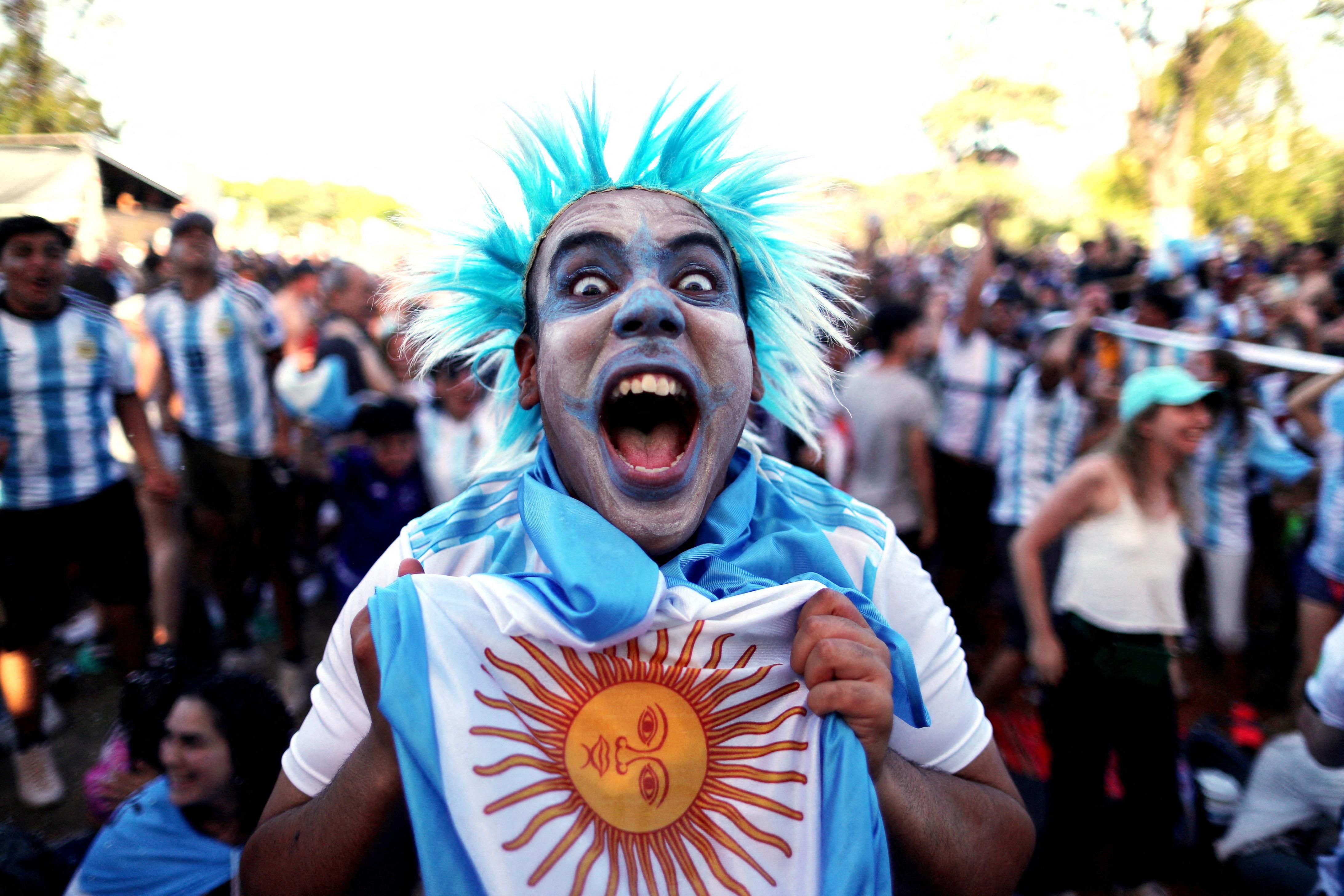When Argentina faces Poland in their do-or-die last group stage match on Wednesday, one thing will be missing at the stadium in Qatar: Argentine politicians.
In the soccer-crazy South American nation, políticos rarely watch the Albiceleste, in person to avoid getting blamed for a loss. Former President Mauricio Macri didn’t get the memo, as he attended — in his new FIFA gig — Argentina’s shocking loss to Saudi Arabia last week. Almost on cue, fans responded by launching an online petition for Macri and his bad juju to stay as far away as possible from GOAT Leo Messi and his crew.
But the brouhaha over Macri is part of a bigger story: The former president has hinted he might want to get his old job back in next year’s election.
Less than a year out from the vote, these are turbulent times in Argentina. Ordinary people are struggling to make ends meet and to figure out how much basic items will actually cost each day, with inflation expected to reach 100% by the end of the year.
The government has thrown the kitchen sink at the problem, but neither IMF austerity to restore confidence in the peso nor direct intervention through price controls have worked to tame runaway inflation. COVID also did a lot of damage, and, to be fair, Argentina’s economic disaster is a legacy of decades of mismanagement, spending beyond its means, and stiffing creditors.
What’s more, no one knows who’ll run in the end. If the center-right Macri throws his hat in the ring, he’ll probably face either deeply unpopular President Alberto Fernández or frenemy VP Cristina Fernández de Kirchner (no relation), who held the top job from 2007-2015. Both are from the traditional left — especially Cristina, whom Argentines refer to by her first name.
A face-off between candidates like this would be deeply polarizing for a country that has swung back and forth on the ideological spectrum twice in the past decade. Macri — who’s not a shoo-in for the nomination if he runs — is as loved by his supporters and hated by his critics as Cristina is.
The feisty vice president is currently under indictment for corruption, but Cristina will probably never see the inside of a prison cell even if she’s convicted. And she demonstrated that she still owns the streets after surviving a recent assassination attempt.
There's also a domestic soccer angle with Macri. The former president got into politics after winning many trophies as president of Boca Juniors, whose supporters call themselves La mitad más uno (Half plus one) as the most popular team in Buenos Aires and all of Argentina.
You’d think that Boca fans would be all in for the man that led the team to so much success — yet most xeneizes are working-class people who’ve historically voted left and won’t cheer for a rich businessman like Macri. Perhaps that’s why the ex-president has, until now, favored Patricia Bullrich, his popular tough-on-crime former security minister.
Whoever leads the opposition ticket is favored to win. A recent poll shows that two-thirds of Argentinians want the ruling Peronista coalition out of power. That’s consistent with a broader trend in the region: For nearly a decade now, Latin Americans have been consistently voting out incumbents, regardless of their ideology.
One rising presidential hopeful is upstart Javier Milei, an eccentric libertarian economist and TV personality who claims not to have brushed his hair since he was 13. The independent Milei, who’s making waves with populist gimmicks like auctioning off his paycheck, would need strong party backing to go all the way, but his early surge tells you a lot about where Argentine voters’ heads are right now.
One thing is clear — the current president is toast. "Even if Argentina wins the World Cup, it is almost certain that Fernández would lose the election," says Eurasia Group analyst Luciano Sigalov. "Whatever politicians like to say, there is no evidence of a relationship between success in sport and politics."
Thought bubble: Although Macri's approval ratings had already started to drop before the 2018 World Cup in Russia, his numbers really began to tank soon after Argentina was eliminated due to the president’s own economic blunders. He never recovered and lost his re-election bid to Fernández.
It sure looks like the incumbent will meet the same fate as his predecessor — if Fernández runs at all.
